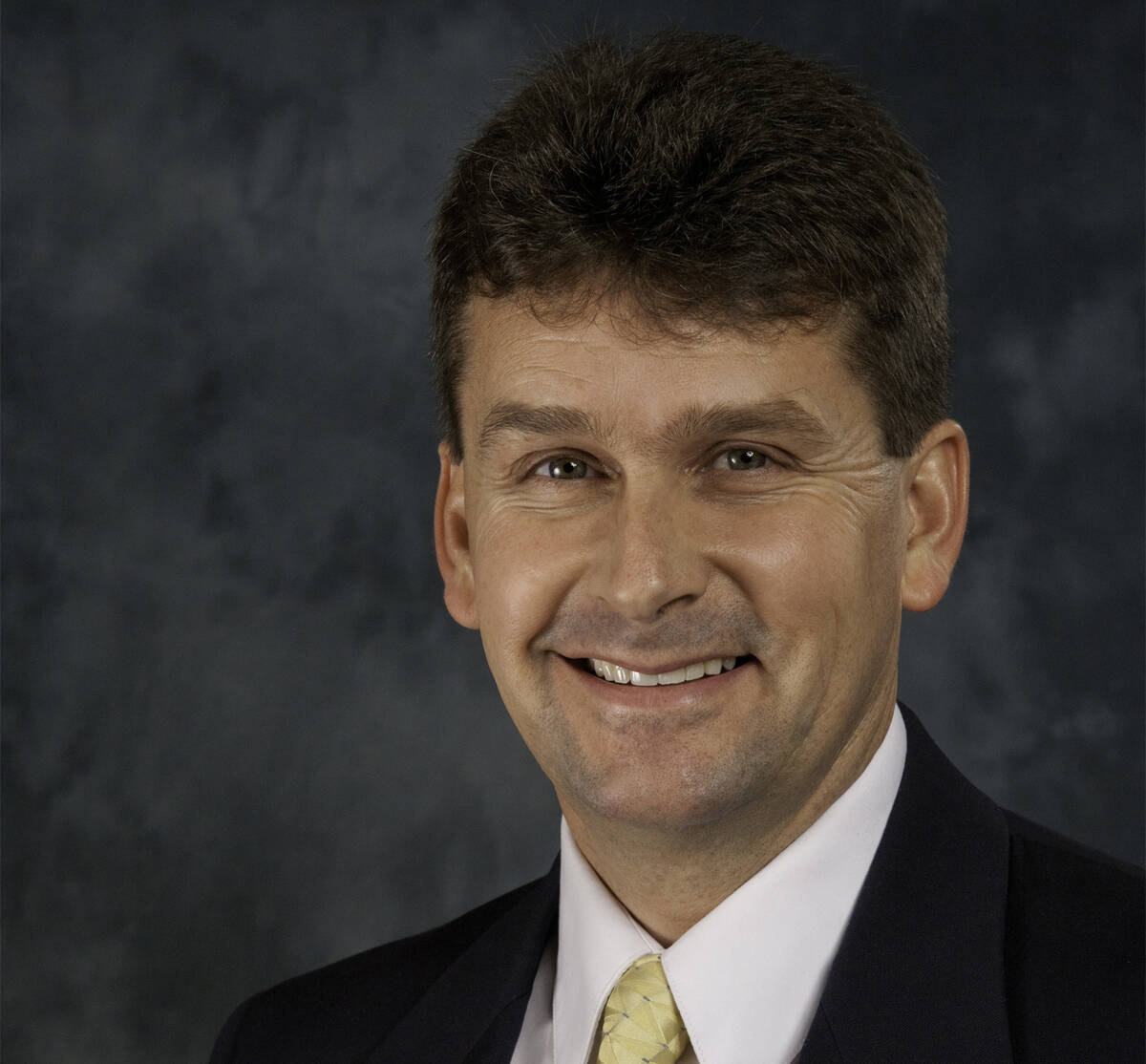Water conservation efforts to thwart drought delusional
I was entering my junior year at Boulder City High School when Lake Mead reached its top elevation of 1,225 feet in 1983. Water rushed over Hoover Dam’s fully extended spillway gates with such force that even an umbrella didn’t keep us dry from the downpour caused by its rebounding spray. Since then, the lake has dropped 185 feet, including a 170-foot decline over the last 22 years during the worst Colorado River system drought in recorded history.
Colorado River water helps 40 million people stay alive in seven Western states and Mexico. The mighty Colorado’s water was apportioned a full century ago when Hoover Dam was still a dream in the heads of a few visionaries. Nevada got the short end of the stick at 300,000 acre-feet annually because Las Vegas was a relative ghost town and Nevada’s negotiators didn’t foresee a compelling need for more. Each of the other states was awarded three to 15 times that amount. In all, 16.5 million acre-feet annually were divvied up when the climate was extremely wet and could seemingly sustain those volumes forever.
Over the last two decades, however, the river has generated average flows of only 12.3 million acre-feet annually, a huge shortfall despite serious municipal conservation and reuse efforts. Southern Nevada has led the way in those laudable efforts. Despite adding 750,000 to our population since 2000, we’ve somehow managed to cut consumptive use by 26 percent due to aggressive conservation and recycling programs.
Still, it’s not nearly enough. Global warming and the megadrought are projected to continue, which means river flows and lake levels will keep plummeting without drastic policy changes. We’re now only 90 feet above the “dead pool” level at which Hoover Dam will cease generating electricity.
And it’s no longer alarmist to prophesy that it could happen within our lifetime or even the next decade. That’s why the federal government recently issued its first-ever shortage declarations, reducing Nevada, Arizona and Mexico’s collective allocations by over 700,000 acre-feet annually, then tasking the seven river states to create a collaborative plan cutting an additional 2-4 million acre-feet annually next year.
So, here’s where I get brutally honest, which always seems to get me in big trouble. But I’ll say it anyway. Nevada isn’t the problem. If we were feeling generous, Nevadans could permanently donate back our entire annual allocation and it wouldn’t even make a dent. River flows would still be woefully insufficient to supply current uses and Lake Mead would still be rapidly draining.
Of course, just because Nevada isn’t the problem doesn’t mean we can’t be part of the solution. Southern Nevadans should continue our conservation and recycling efforts, even if only to set an example and because it’s the right thing to do. But we need to stop pretending that eliminating more Clark County lawns, reducing the size of more (Las) Vegas golf courses and swimming pools, or even recycling all 1 million gallons of Boulder City’s daily wastewater will somehow solve the systemic river and lake problems. It won’t. Nevada amounts to nothing more than a statistical rounding error in the riverwide problem, and absolutely nothing Nevadans do to better conserve or recycle is going to change that.
Domestic water use also isn’t the problem. Nor are golf courses and resorts. If we completely wiped out the residential populations of Nevada, Utah, Wyoming and New Mexico, for instance, drying up millions or acres of turf and water features in the process, the lake would still be dropping.
Let’s be honest. Desert agriculture is the real problem source. It uses approximately 80 percent of the Colorado River’s water to irrigate 15 percent of the nation’s farmland, producing a high percentage of winter fruits and vegetables. In fact, 20 percent of the entire Colorado River system’s output is channeled across the desert to a few wealthy landowners in California’s once-arid but now-productive Imperial Valley. And growers of cattle feed like alfalfa are by far the biggest river water consumers.
So, if we really want to solve our Colorado River problem, then desert agriculture either needs to evaporate out of existence like the water it uses or become vastly more efficient. The best way to ensure that happens is to let the market dictate price. Make agriculture, commercial and industrial users pay for every drop they use, sending it to the highest bidders. With the market in control, we’ll be shocked how quickly irrigation ditches get lined with concrete, recycling projects ramp up and the lake start rising again.
Sure, many farms will go out of business as costs escalate. But that will happen anyway at the rate we’re going, and we’ll lose power-generation capabilities in the process. Our consumer pocketbooks will feel it occasionally when buying those expensive off-season fruits and vegetables. But that seems a small price compared to the catastrophic impacts if we continue to delude ourselves into believing that artificial turf in our front yards is going to solve our chronic river problems.
The opinions expressed above belong solely to the author and do not represent the views of the Boulder City Review. They have been edited solely for grammar, spelling and style, and have not been checked for accuracy of the viewpoints.
Rod Woodbury has resided in Boulder City for more than 40 years and is the president and managing shareholder of his law firm, Woodbury Law. He served on the City Council from 2011- 2019, including four years as mayor.






